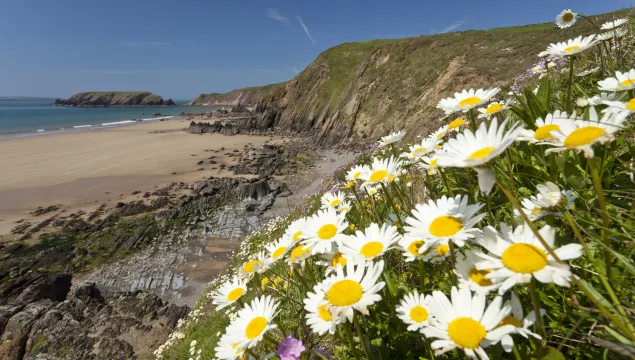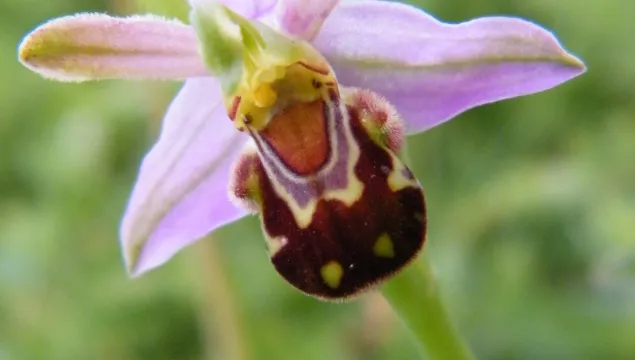Colt's-foot
Looking like a short Dandelion, but with a much rounder middle, Colt's-foot is a 'weed' of waste ground and field edges that brightens up early spring with its sunshine-yellow flower heads.
Looking like a short Dandelion, but with a much rounder middle, Colt's-foot is a 'weed' of waste ground and field edges that brightens up early spring with its sunshine-yellow flower heads.
He loves me, he loves me not' is a familiar rhyme associated with what is probably our most well-known plant: the common daisy. Its white-and-yellow flower heads brighten up lawns, verges and short turf almost everywhere.
Pineappleweed is an introduced species that has become a widespread 'weed' of disturbed ground, such as pavements and roadsides and gardens. It has feathery leaves and yellow flower heads.
Yarrow can be found in many grasslands, from lawns to meadows, its flat-topped clusters of flower heads appearing from June. Cultivated varieties are garden favourites.
Also known as 'Raspberries and Cream', Hemp-agrimony displays 'frothy' clusters of tiny, pink flowers on top of long, reddish stems. Its leaves look like those of Hemp, although it is not related.
Tansy is an aromatic plant of rough grassland, riverbanks and verges that has button-like, yellow flower heads. It is the main foodplant of the rare Tansy Beetle, now found at only two places in the UK.

Often growing in swathes along a roadside or field margin, the oxeye daisy is just as at home in traditional hay meadows. The large, white, daisy-like flowers are easy to identify.
Look out for the feathery leaves of Spiked water-milfoil just below the surface of streams, ditches, lakes and ponds; its red flowers emerge from the water in summer. It provides shelter for a range of aquatic wildlife.
Greater burdock is familiar to us as the sticky plant that children delight in, frequently throwing the burs at each other. It actually uses these hooked seed heads to help disperse its seeds.
An easily overlooked orchid, the Common twayblade is yellow-green and less showy than other UK orchids. Look for it in woodlands and grasslands on chalky soils, in particular.
The Bird's-nest orchid gets its name from its nest-like tangle of roots. Unlike other green plants, it doesn’t get its energy from sunlight. Instead, it grows as a parasite on tree roots, so its brownish-yellow flowers look a bit sickly.

The bee orchid is a sneaky mimic - the flower’s velvety lip looks like a female bee. Males fly in to try to mate with it and end up pollinating the flower. Sadly, the right bee species doesn’t live here, so this orchid is self-pollinated in the UK.